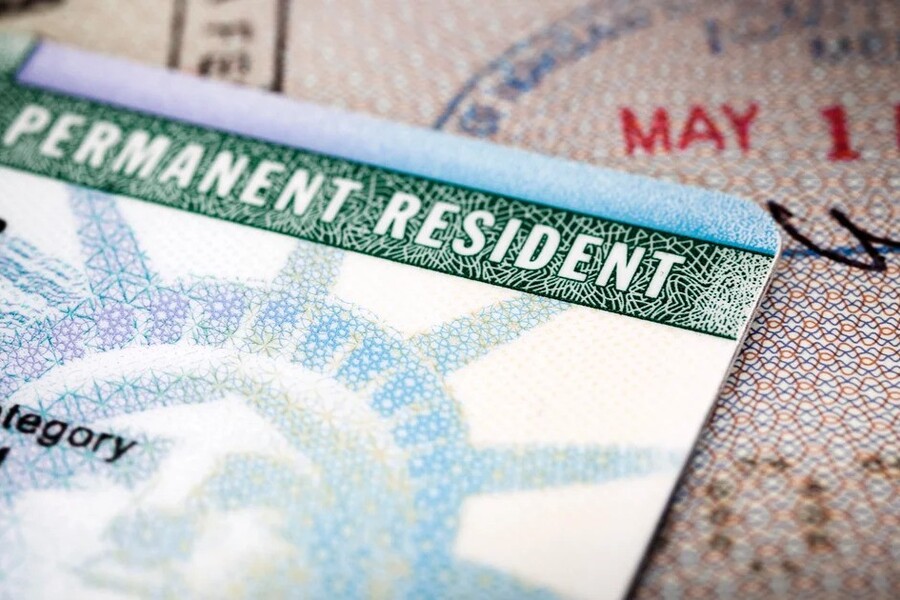The Trump administration has ordered U.S. Citizenship and Immigration Services (USCIS) officers to examine whether applicants for certain immigration benefits have endorsed or supported “anti-American” views or the views of terrorist groups—online or offline—and to treat such findings as an “overwhelmingly negative factor” that can justify denial.
The move broadens the kinds of conduct that may be scrutinized when people apply for benefits such as green cards, work permits, and some changes of nonimmigrant status. It is the latest step in a wider effort to tighten access not only to the unauthorized immigration system but also to legal pathways by expanding vetting and the exercise of discretion.
What the new guidance says
The USCIS memo instructs adjudicators to determine whether applicants have “endorsed, promoted, supported, or otherwise espoused” anti-American views, or the views of a terrorist organization or group, including via social media posts and affiliations. USCIS says this category can include organizations that promote antisemitic views and terrorism.
If officers conclude an applicant has such ties or has shared those views, they are directed to consider that evidence as a powerful negative factor when deciding whether to approve a benefit request that is otherwise discretionary.
USCIS indicated officers would rely in part on existing immigration statutes—for example, provisions that bar naturalization for those who advocate world communism or totalitarianism, violence against officials, or the overthrow of the U.S. government—to guide how “anti-American” advocacy is assessed. The agency did not specify how broadly that standard will be interpreted.
Which applications are affected
The directive applies to discretionary cases—benefits the government may deny even if baseline statutory eligibility is met. According to USCIS, this can include:
- Many applications for permanent residence (green cards)
- Certain employment authorization requests
- Some status changes (e.g., for foreign students)
By contrast, non-discretionary determinations that are strictly eligibility-based are not the focus of this memo.
Parole applications are under added scrutiny
The guidance also tells officers to investigate whether applicants previously used immigration parole improperly to enter the U.S., and whether any parole filings contained “false or fraudulent” statements. Parole—used extensively during the Biden administration—allows entry for people who are otherwise ineligible to be admitted, often for urgent humanitarian or public-interest reasons. The memo signals that past use of parole may now trigger closer review in later benefit applications.
Agency rationale and early criticism
USCIS spokesperson Matthew Tragesser said the policy underscores that immigration benefits should not go to people who “despise the country,” adding that the agency is committed to policies “that root out anti-Americanism” and to “rigorous screening and vetting measures to the fullest extent possible.”
Immigration law scholar Stephen Yale-Loehr cautioned that the memo’s language is “very subjective,” arguing it gives officers “even more reasons than before to deny a petition on discretionary grounds.”
Broader context: tightening the legal system, not just enforcement
While President Trump has emphasized crackdowns on illegal immigration in his second term, his administration has also moved to restrict access within the legal immigration system. Just last week, USCIS expanded how it evaluates “good moral character” in citizenship cases, instructing officers to weigh positive community involvement alongside negative conduct—potentially including repeat traffic infractions—rather than focusing primarily on serious criminal history. The agency has also placed greater emphasis on social-media screening across benefit types.
What this means for applicants (reader Q&A)
Who could be impacted?
Anyone seeking a discretionary immigration benefit—such as many green card, work-permit, or status-change applications—could face heightened review of affiliations and online activity.
How will “anti-American” be defined?
USCIS says officers will draw from existing law (e.g., advocacy of totalitarianism or violent overthrow), but the agency has not provided a bright-line definition. The scope remains unclear, which is why legal experts warn about subjectivity.
Will my social media be reviewed?
Yes, the memo explicitly references social media. Posts, shares, group memberships, and public endorsements may be considered.
What about people who entered on parole?
Prior use of parole can prompt additional questions. USCIS says it will probe for any false or fraudulent statements in past filings.
Is this a new ground of inadmissibility?
No. The memo primarily concerns how officers exercise discretion in cases where they already have leeway to approve or deny, not the creation of new statutory bars.
Practical takeaways for applicants
- Audit your public footprint: Ensure your public posts and group affiliations do not suggest endorsement of violence, terrorism, or anti-American advocacy. Context matters, but officers may read posts strictly.
- Document positive equities: Community service, employment history, education, and family ties can be relevant when officers weigh discretionary factors—especially as “good moral character” assessments broaden.
- Be consistent and truthful: Any misrepresentation—particularly in prior parole filings—can severely damage a case.
- Expect more questions: Requests for Evidence (RFEs) or interviews may probe online activity and affiliations more deeply than in prior years.
(This is general information, not legal advice. Applicants should consult qualified counsel about individual circumstances.)
What’s next
Key unknowns include how USCIS will operationalize the “anti-American” standard, what evidence it will treat as decisive, and how consistently officers will apply the guidance across field offices. Given the memo’s discretionary framing and subjective elements, additional policy clarifications or legal challenges are possible. For now, applicants can expect tighter vetting—particularly around social media and prior use of parole—as the agency implements the directive.


